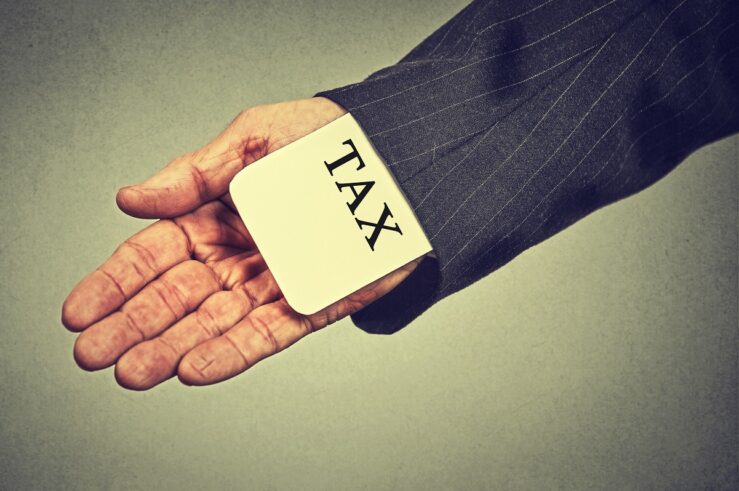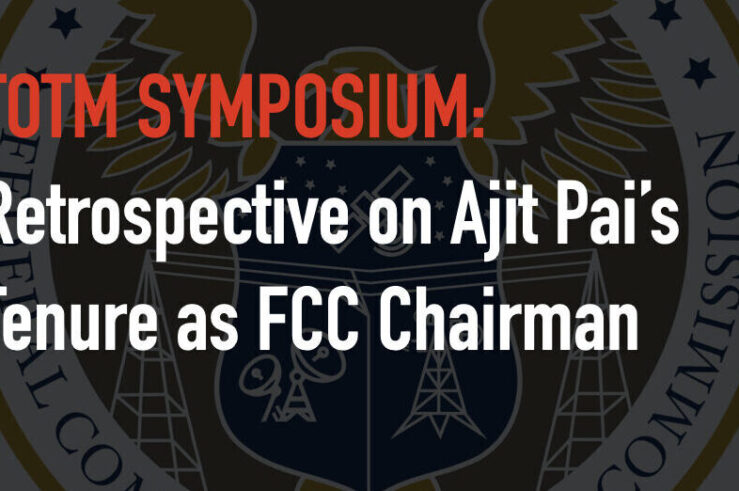Showing archive for: “Tax”
The Effect of VAT Withholding Requirements in Latin America
Innovations in payment systems are rapidly transforming the world economy. While Bitcoin, Ethereum, and other decentralized blockchain-based systems tend to garner much of the press (good and bad), centralized peer-to-peer (P2P) payment systems are far more common. (Note that I use the term P2P here in its original sense to mean all peer-to-peer transactions, which ... The Effect of VAT Withholding Requirements in Latin America
There’s Nothing ‘Fair’ About EU Telecoms’ Proposed ‘Fair Share’ Plan
The European Commission’s recently concluded consultation on “the future of the electronic communications sector and its infrastructure” was a curious phenomenon in which the commission revived the seemingly dead-and-buried idea of a legally mandated “sender pays” network-traffic scheme, despite the fact that it remains as unpopular and discredited as it was when last discussed roughly ... There’s Nothing ‘Fair’ About EU Telecoms’ Proposed ‘Fair Share’ Plan
How Chairman Pai Restored the FCC’s Independence
Chairman Ajit Pai will be remembered as one of the most consequential Federal Communications Commission chairmen in history. His policy accomplishments are numerous, including the repeal of Title II regulation of the internet, rural broadband development, increased spectrum for 5G, decreasing waste in universal service funding, and better controlling robocalls. Less will be said about ... How Chairman Pai Restored the FCC’s Independence
Islands of Chaos: The Economic Calculation Problem Inherent in Municipal Broadband
Municipal broadband has been heavily promoted by its advocates as a potential source of competition against Internet service providers (“ISPs”) with market power. Jonathan Sallet argued in Broadband for America’s Future: A Vision for the 2020s, for instance, that municipal broadband has a huge role to play in boosting broadband competition, with attendant lower prices, ... Islands of Chaos: The Economic Calculation Problem Inherent in Municipal Broadband
The CARES Act and the Tantalizing Promise of a Universal Basic Income
This week, Americans began receiving cold, hard cash from the government. Meant to cushion the economic fallout of Covid-19, the CARES Act provides households with relief payments of up to $1200 per adult and $500 per child. As we have written elsewhere, direct cash transfers are the simplest, least paternalistic, and most efficient way to ... The CARES Act and the Tantalizing Promise of a Universal Basic Income
Base Small Business Support on their Economic Realities
[TOTM: The following is part of a blog series by TOTM guests and authors on the law, economics, and policy of the ongoing COVID-19 pandemic. The entire series of posts is available here. This post is authored by Mark Jamison, (Director and Gunter Professor, Public Utility Research Center, University of Florida and Visiting Scholar with the American Enterprise ... Base Small Business Support on their Economic Realities
What Has Big Tech Ever Done for Us? Part Two
[TOTM: The following is part of a blog series by TOTM guests and authors on the law, economics, and policy of the ongoing COVID-19 pandemic. The entire series of posts is available here. This post is authored by Dirk Auer, (Senior Researcher, Liege Competition & Innovation Institute; Senior Fellow, ICLE).] Across the globe, millions of ... What Has Big Tech Ever Done for Us? Part Two
Economics is Dead. Long Live Economics! A Review of The Economists’ Hour
John Maynard Keynes wrote in his famous General Theory that “[t]he ideas of economists and political philosophers, both when they are right and when they are wrong, are more powerful than is commonly understood. Indeed the world is ruled by little else. Practical men who believe themselves to be quite exempt from any intellectual influence, ... Economics is Dead. Long Live Economics! A Review of The Economists’ Hour
Rising Concentration, Rising Prices: Not So Fast
Wall Street Journal commentator, Greg Ip, reviews Thomas Philippon’s forthcoming book, The Great Reversal: How America Gave Up On Free Markets. Ip describes a “growing mountain” of research on industry concentration in the U.S. and reports that Philippon concludes competition has declined over time, harming U.S. consumers. In one example, Philippon points to air travel. ... Rising Concentration, Rising Prices: Not So Fast
Why Negative Externalities Don’t Justify a Tax on Employers that Drive Up Demand for Housing
Writing in the New York Times, journalist E. Tammy Kim recently called for Seattle and other pricey, high-tech hubs to impose a special tax on Microsoft and other large employers of high-paid workers. Efficiency demands such a tax, she says, because those companies are imposing a negative externality: By driving up demand for housing, they ... Why Negative Externalities Don’t Justify a Tax on Employers that Drive Up Demand for Housing
Vapor products, smoking, and harm reduction policies: Recent blog posts
Over the past few weeks, Truth on the Market has had several posts related to harm reduction policies, with a focus on tobacco, e-cigarettes, and other vapor products: Vapor products, harm reduction, and taxation: More questions than answers for a young and dynamic product market Applying harm reduction to smoking The political economy of vaping ... Vapor products, smoking, and harm reduction policies: Recent blog posts
Reflections on the recent filings in Qualcomm/FTC dispute
On Monday, the U.S. Federal Trade Commission and Qualcomm reportedly requested a 30 day delay to a preliminary ruling in their ongoing dispute over the terms of Qualcomm’s licensing agreements–indicating that they may seek a settlement. The dispute raises important issues regarding the scope of so-called FRAND (“fair reasonable and non-discriminatory”) commitments in the context ... Reflections on the recent filings in Qualcomm/FTC dispute









